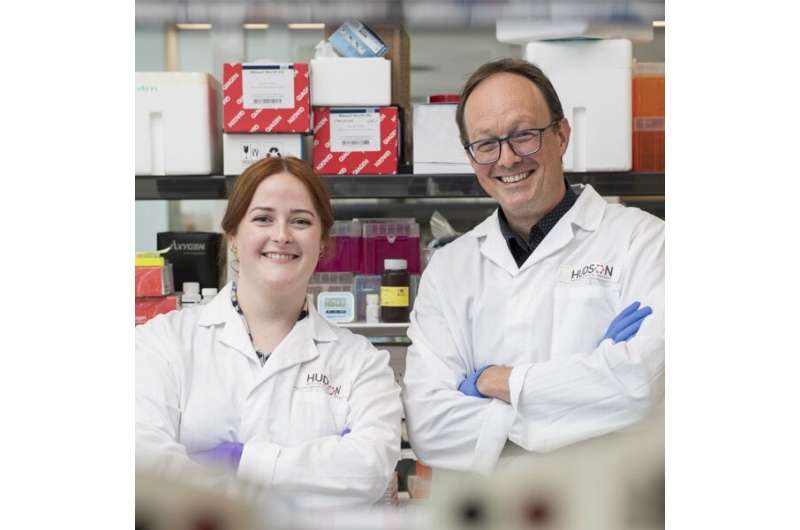This article has been reviewed according to Science X's editorial process and policies. Editors have highlighted the following attributes while ensuring the content's credibility:
fact-checked
trusted source
proofread
Researchers explore the role of the epigenome in non-genetic disease inheritance

The nature versus nurture debate has a new talking point, with research into the role of the epigenome in non-genetic disease inheritance.
Associate Professor Patrick Western and his team at Hudson Institute of Medical Research have been examining the role that factors other than genes play in the development of offspring, with their latest findings published in the journal Clinical Epigenetics.
Western said while the role of genes in inheritance has been long established, his team's focus has been on epigenetic information carried by the egg, and the part it plays in the development of healthy offspring.
Lead author Dr. Ellen Jarred explained that genes provide the genetic instructions to make all the components our cells need, but there's more to it than that.
Non-genetic disease inheritance and offspring health
"Epigenetic information in the sperm or egg of the parents can be altered by environmental influences, such as diet, drugs and chemicals, and these changes can alter health in our offspring," Jarred said.
"Epigenetic modifications influence which combination of genes are turned on or off in a cell, and thereby influence and maintain the formation, function and identity of different cell types in our bodies."
"If the genetic sequence is the written instructions in a book, then epigenetic modifications are like highlights or notes added to help interpret the text," she said.
Previous studies by the lab showed that the loss of one epigenetic modification, called H3K27me3, in mouse eggs results in offspring overgrowth. This latest study provides new insight into how and when H3K27me3 is added as eggs grow and mature, and the impacts this critical epigenetic program may have on offspring.
"This work is relevant in understanding how non-genetic factors in the oocyte (egg) contribute to fetal and early life development, inherited disease and rare overgrowth conditions in humans, known as Cohen-Gibson and Weaver Syndromes," Western said.
"As environmental factors such as diet or drug and alcohol consumption can influence our epigenome, this work may also shed light on how our environment could impact the oocyte epigenome and offspring health," he said.
More information: Ellen G. Jarred et al, Transient Polycomb activity represses developmental genes in growing oocytes, Clinical Epigenetics (2022). DOI: 10.1186/s13148-022-01400-w




















